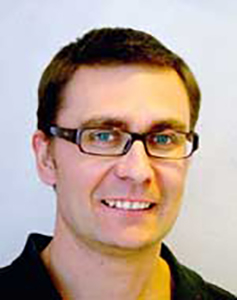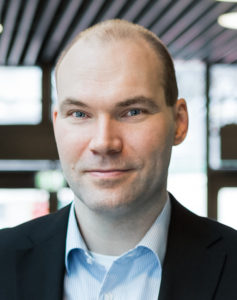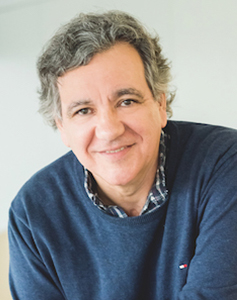Ponencia JISBD – Lunes, 5 de septiembre de 2022
Ponente: Prof. Dr. Robert Feldt

Titulo:
Where is (and should) Empirical Software Engineering (be) going? – Diapositivas
Resumen:
Software Engineering is relatively young and as any scientific discipline it is evolving both in the topic it studies and in the methods it uses. However, one can ask if and in what sense it is also maturing? It is clear that there is a larger push for empirical studies; it is rare nowadays that papers are accepted in the top venues without extensive empirical support and validation. However, increasing the number/ratio of empirical studies might not be enough, we should also discuss the evolution of the topics studied and the methodological quality.
In this talk, I’ll share results on how empirical software engineering has evolved over the last 25 years both in the topics it studies, the methods used, and the underlying data collected. Based on this I will then consider if the current trends are the desirable ones and give pointers and inspiration to what we might do differently going forward. In particular, I will propose we need more precision in the hypotheses we study and in the claims we make. I will also argue our results should increasingly take the form of causal models and theories.
Bio:
Prof. Robert Feldt is a Professor of Software Engineering at Chalmers University of Technology in Gothenburg, where he is part of the Software Engineering division at the Department of Computer Science and Engineering. He is also a part-time Professor of Software Engineering at Blekinge Institute of Technology in Karlskrona, Sweden. Since April 2017 I’m the co-Editor in Chief of Empirical Software Engineering (EMSE) Journal.
Feldt is very broad interests in Software Engineering but in particular focus on software testing, requirements engineering, psychological and social aspects as well as agile development methods/practices. He was «one of the pioneers» in the search-based software engineering field (according to an ACM Computing Survey of SBSE) and has a general interest in applying Artificial Intelligence and Machine Learning both during software development and, in general, within software systems. Based on my studies in Psychology he have also tried to get more research focused on human aspects; an area we have proposed to call Behavioral Software Engineering.
Ponencia SISTEDES – Martes, 6 de septiembre de 2022
Ponente: Prof. Dr. Uwe Zdun

Titulo:
Conformance Assessment in Continuously Delivered Microservice Architectures
Resumen:
Microservice-based architectures are increasingly being used to develop application systems. Despite many guidelines and best practices being published, architecting microservice systems is challenging. Reasons are the size and complexity of microservice systems, their polyglot nature, and the demand for the continuous evolution of these systems. In this context, manually validating whether specific architecture guidelines and best practices are employed as intended throughout the system is a time-consuming and error-prone task. In this talk, we present an approach to avoid such manual validation before each continuous evolution step in a microservice system. We discuss this approach for different views of the microservice architecture, including architecture views on component decomposition, continuous delivery, deployment, microservice APIs, and security. Our approach is based on a review of existing industry guidelines, the gray literature, and the scientific literature, from which we derived Architectural Design Decisions (ADDs) with architecture patterns and best practices as decision options. In our approach, we propose novel detectors to detect these decision options automatically. We formally define metrics to measure the conformance of a system to the different options of the ADDs.
Bio:
Prof. Dr. Uwe Zdun is a full professor of software architecture at the Faculty of Computer Science, University of Vienna. Before that, he worked as an assistant professor at the Vienna University of Technology and the Vienna University of Economics respectively. He received his doctoral degree from the University of Essen in 2002.
His research focuses on software design and architecture, empirical software engineering, distributed systems engineering (microservices, service-based, cloud, APIs, IoT, and blockchain-based systems), DevOps and continuous delivery, software patterns, software modelling, and model-driven development.
Uwe has published more than 275 articles in peer-reviewed journals, conferences, book chapters, and workshops, and is co-author of the books «Remoting Patterns – Foundations of Enterprise, Internet, and Realtime Distributed Object Middleware», «Process-Driven SOA – Proven Patterns for Business-IT Alignment», and «Software-Architektur.» He has participated in 34 R&D projects. Uwe is editor in chief of the journal Transactions on Pattern Languages of Programming (TPLoP) published by Springer, Editor of the Journal of Systems and Software (JSS) published by Elsevier, Editor of the Computing journal published by Springer, and Associate Editor-in-Chief for design and architecture for the IEEE Software magazine.
Ponencia PROLE – Miércoles, 7 de septiembre de 2022
Ponente: Prof. Dr. Manuel Hermenegildo

Titulo:
Prolog cumple 50, larga vida a Prolog!
Resumen:
Prolog cumple 50 años y este año ha sido declarado el «Año de Prolog» para celebrar este aniversario, y el hecho de que, después de todos estos años, Prolog y la programación de lógica sigan siendo relevantes para la programación de alto nivel y la IA simbólica y explicable, con numerosas implementaciones que siguen evolucionando, y nuevas que aparecen continuamente.
En esta charla repasaré la evolución de Prolog a lo largo de estos años y la estado actual del lenguaje y sus implementaciones, seguidas de algunas reflexiones sobre retos y oportunidades para el futuro. También explicaré brevemente cómo abordamos algunos de estos desafíos en nuestro sistema Ciao Prolog. Finalmente también intentaré aportar algunas ideas sobre cómo enseñar Prólog y la Programación Lógica en general.
Bio:
Manuel Hermenegildo received his Ph.D. degree in Computer Science and Engineering from the U. of Texas at Austin (1986) and an Engineer’s Degree from T.U. Madrid UPM (1981). He is currently Distinguished Professor at the IMDEA Software Research Institute and full Prof. of Computer Science at T.U. Madrid (UPM). He held the P. of Asturias Endowed Chair at the U. of New Mexico, USA (2003-2008) and was Project Leader at the MCC research center (1986-1989) and Adjunct Assoc. Prof. at the CS Department of the U. of Texas in Austin (1987-1990).
His areas of interest include global program analysis, optimization, verification, and debugging; abstract interpretation; partial evaluation; energy-aware computing; analysis, verification, and optimization of resources and other non-functional properties; parallelism and parallelizing compilers; constraint/logic/functional programming theory and implementation; abstract machines; automatic documentation tools; execution visualization; and sequential and parallel computer architecture. He is one of the main contributors to the Ciao multiparadigm programming language and the CiaoPP program analyzer, optimizer, and verifier.
He has published more than 250 refereed papers and monographs, given numerous keynotes and invited talks, coordinated a large number of international projects, chaired a number of PCs of major international conferences, and is area editor or adviser for various international journals. He received the Julio Rey Pastor Spanish National Prize for Mathematics and Information Science and Technology, the highest national distinction in the area, and the Aritmel National prize in Computer Science, given by the Spanish computer science association.
He has supervised 14 Ph.D. theses at UPM, the U. of New Mexico, and the U. of Texas at Austin.
He is the president of the Scientific Board of INRIA, member of the Scientific Advisory Board of Dagstuhl, vice-President of Informatics Europe, and member of the Steering Board of EIT Digital, among others. He has been elected President of the International Association for Logic Programming, as well as member of the executive committee of the European Association for Programming Languages and Systems, and several other international committees, and is a member of Academia Europaea.